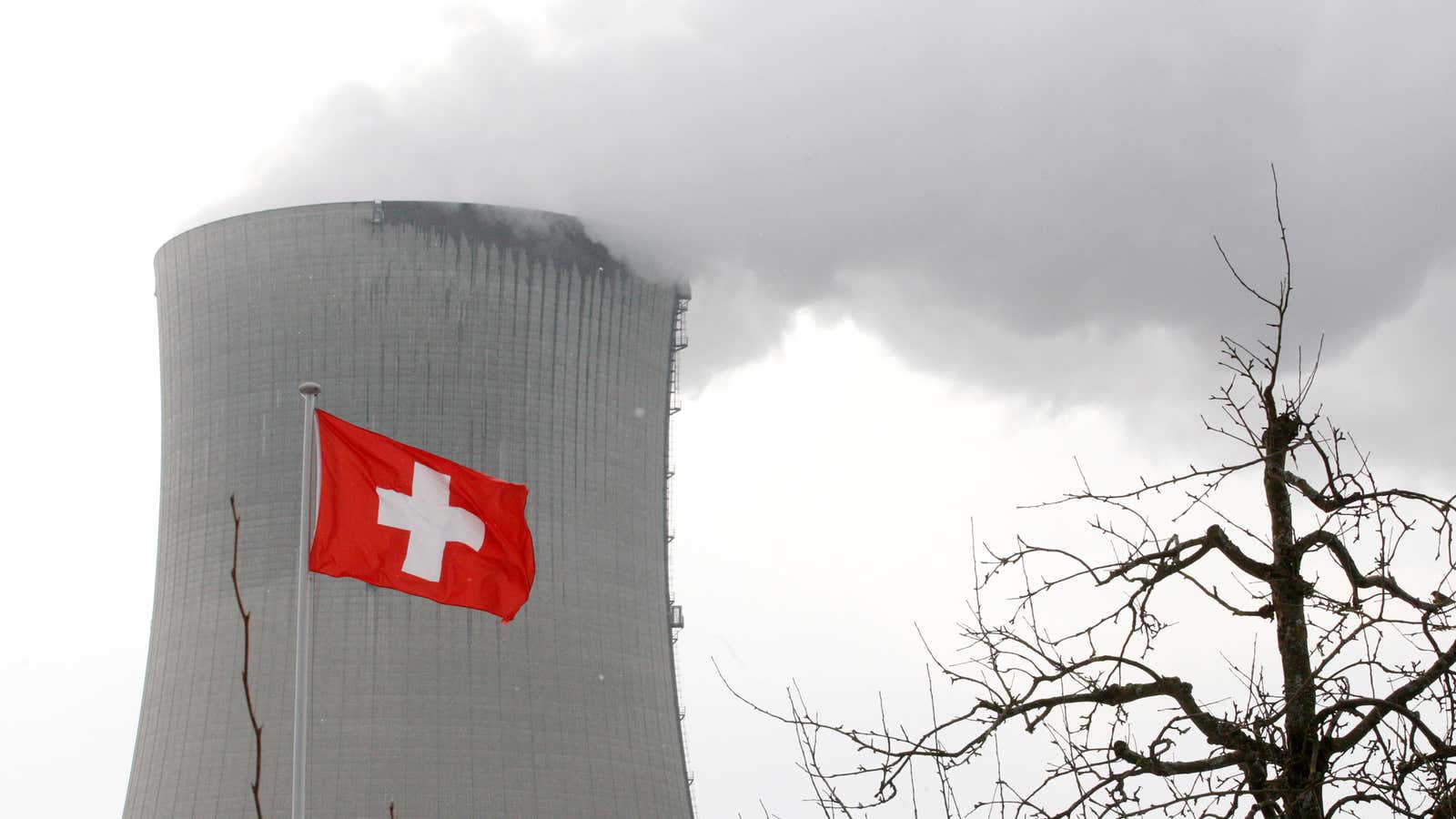The Swiss have used their power of direct democracy to end nuclear power. In a referendum on Sunday (May 21), 58.2% voted in favor of a law that will not allow building of new nuclear plants. The country’s five nuclear plants can continue to operate as long as they are safe.
Switzerland relies heavily on hydro and nuclear to fulfill its electricity needs. Non-hydro renewable energy forms a tiny fraction of the mix.
The country’s Energy Strategy 2050 law, passed by the referendum, aims to move the country away from nuclear energy. At the same time, it also sets out ambitious goals to reduce carbon emissions. So nuclear power will have to replaced by low-carbon sources. That is why it will provides billions in subsidies to increase the proportion of solar and wind in the mix, and bail out the country’s hydro power utilities, whose costs exceed Europe’s wholesale power prices.
The law is not without controversy. One question is how much the average Swiss will end up paying for the changes. Energy minister Doris Leuthard said financing renewables will cost an average family 40 Swiss francs ($41) a year. Critics say that the actual cost may be 80 times higher.
The nuclear power industry has taken a beating recently. The Swiss vote follows Germany’s 2011 decision to phase out all 17 nuclear plants by 2022. France’s new president Emmanuel Macron has appointed a nuclear critic as his energy minister (paywall). In March, Westinghouse, a nuclear power giant, filed for bankruptcy after long delays and cost overruns on its American projects had started weighing on its finances.
